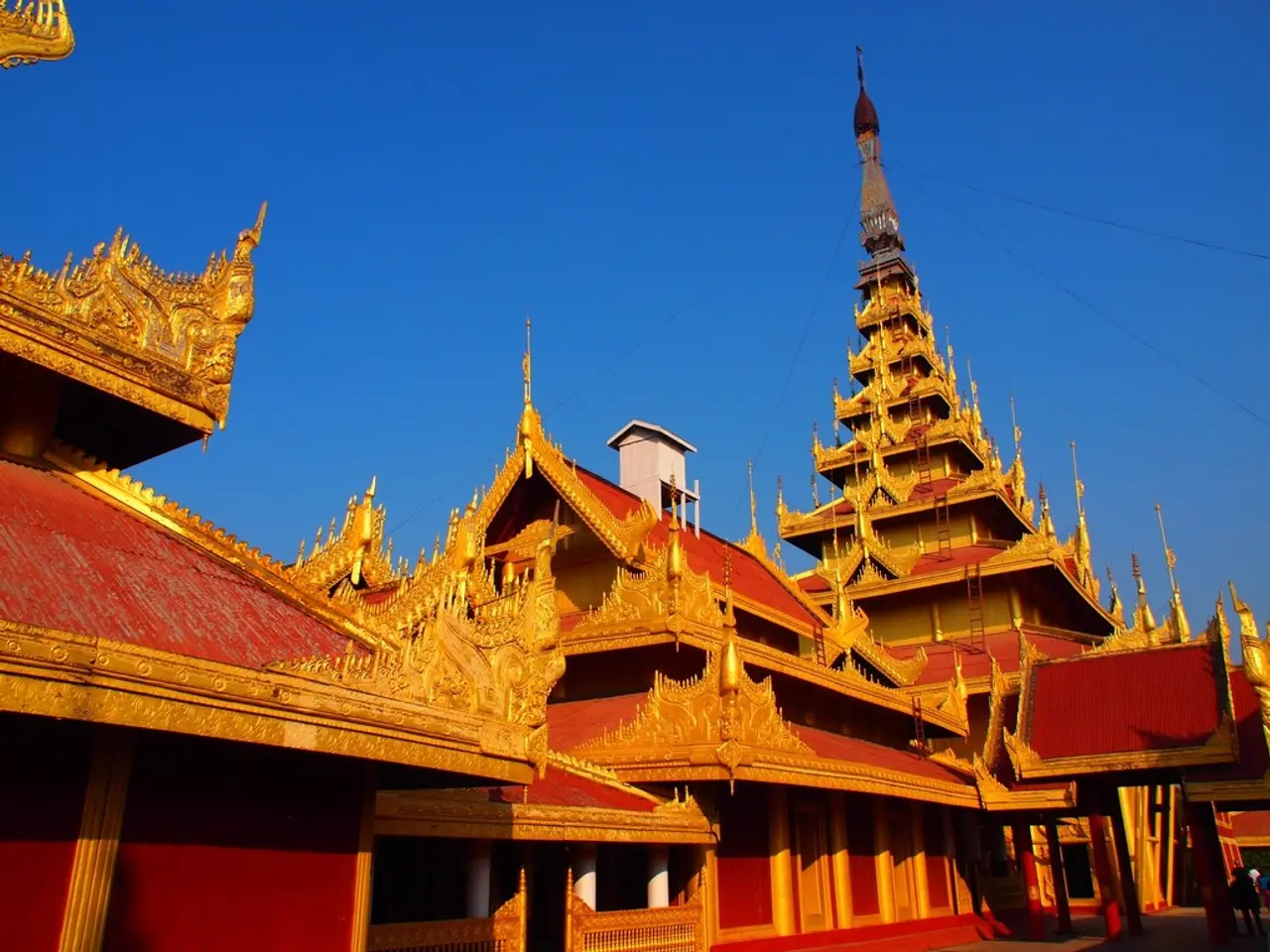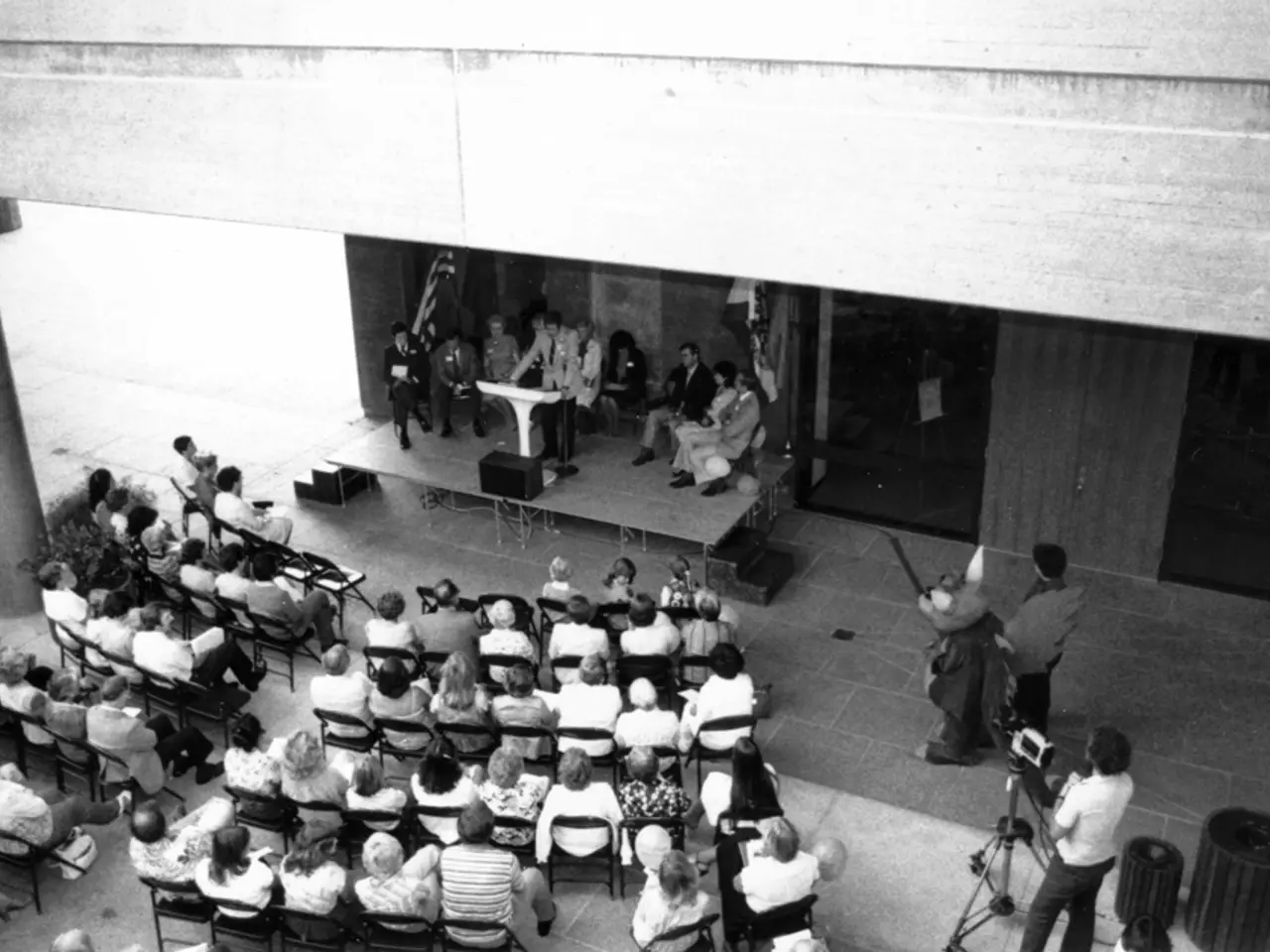Bangladesh remains politically unstable a year following a violent insurrection
A year has passed since the massive student-led uprising that forced former Prime Minister Sheikh Hasina to flee Bangladesh in August 2020, and the South Asian nation finds itself in a complex and fragile political situation. The interim government, headed by Nobel Peace Prize laureate Muhammad Yunus, has struggled to bring stability and democratic legitimacy, as the country grapples with political polarisation, human rights challenges, and uncertainties over democratic processes.
The interim government, formed on August 8, 2020, has taken significant steps to address the political crisis. They have established 11 reform commissions, including a national consensus commission, to work on future governments and the electoral process. However, there is no mention of any specific reforms being undertaken by these commissions.
The political landscape in Bangladesh is marked by deep divisions, with the ban on the Awami League (AL) party, led by Sheikh Hasina, and its subsequent exclusion from the upcoming elections, causing further polarisation. This move was influenced by the National Citizen Party (NCP) formed by students from the uprising and Islamist allies.
The human rights situation in Bangladesh remains concerning. Reports indicate ongoing torture, deaths in custody, arbitrary detentions, and politically motivated charges against thousands, mostly AL supporters. Over 92,000 individuals have been charged since the protests, including prominent AL figures, with accusations of denied medical care and lack of fair judicial process.
Human Rights Watch has accused the interim government of using arbitrary detention to target perceived political opponents, especially supporters of Sheikh Hasina. The government's human rights agenda, therefore, appears to be overshadowed by allegations of rights abuses.
Violent clashes continue between security forces, NCP supporters, and AL backers, with deadly confrontations being a common occurrence. The most recent example being the clashes in Gopalganj in July 2025 following NCP rallies.
The outlook for free and fair elections remains precarious. Suspicions persist that the postponement of elections aims to allow the NCP and Islamist allies to consolidate power. Questions remain about who will be allowed to participate in the elections, as the principle of fairness over power struggles deepens.
Beyond politics, Bangladesh faces long-term issues including climate change, public health, and economic concerns, which compound the instability.
In summary, Bangladesh’s political system is at a crossroads, with an interim government struggling to maintain stability and build democratic legitimacy while managing a deeply divided society and ongoing rights abuses. The situation remains volatile, with the approach to upcoming elections critical to determining whether the country can avoid descending into authoritarianism or further conflict.
[1] BBC News, "Bangladesh: A Year After the Student Uprising," 5 August 2021, https://www.bbc.com/news/world-asia-58061525 [2] Human Rights Watch, "Bangladesh: Interim Government's Arbitrary Detentions," 10 September 2021, https://www.hrw.org/news/2021/09/10/bangladesh-interim-governments-arbitrary-detentions [3] The Diplomat, "Bangladesh's Political Crisis: A Year After the Student Uprising," 6 August 2021, https://thediplomat.com/2021/08/bangladeshs-political-crisis-a-year-after-the-student-uprising/ [4] Al Jazeera, "Bangladesh: A Year After the Student Uprising," 5 August 2021, https://www.aljazeera.com/news/2021/8/5/bangladesh-a-year-after-the-student-uprising
The political crisis in Bangladesh continues to dominate the world news, as concerns about rights abuses and political polarization persist under the interim government. Amidst calls for fair elections, Human Rights Watch has criticized the government over its alleged use of arbitrary detention to target perceived opponents, especially supporters of former Prime Minister Sheikh Hasina. Articles from BBC News, Al Jazeera, The Diplomat, and Human Rights Watch have covered these developments, offering general-news and crime-and-justice perspectives on the unfolding political situation in Bangladesh.








